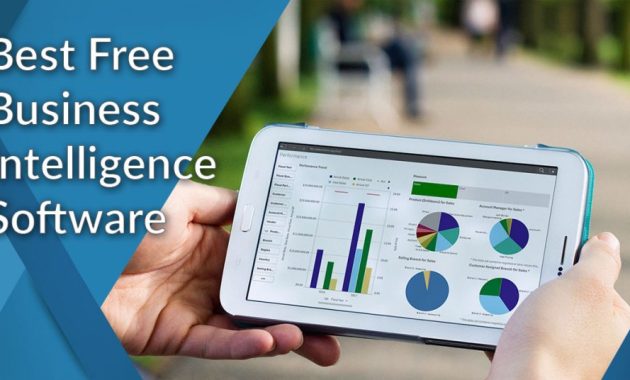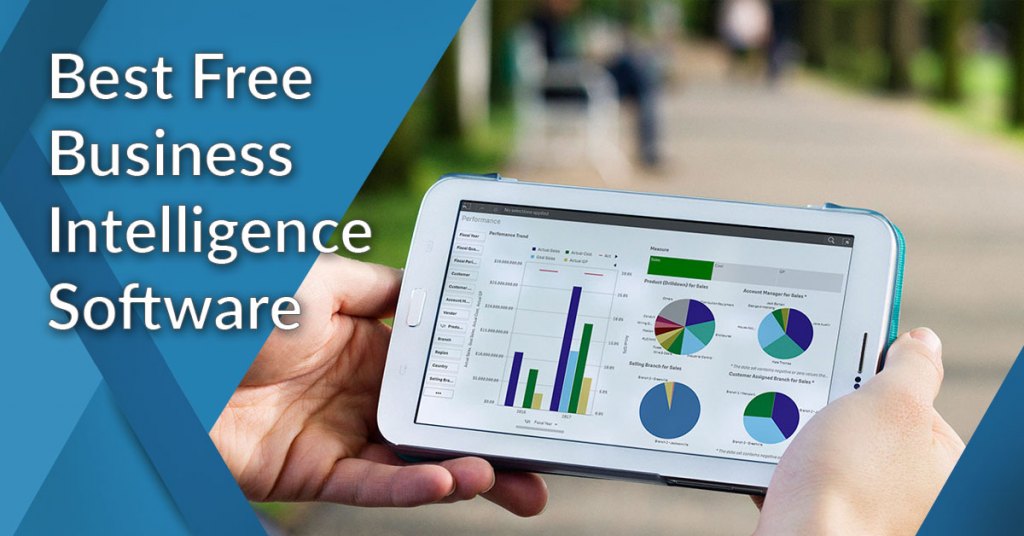
Business Intelligence Software That Drives Smarter Decisions: A Comprehensive Guide
In today’s data-driven world, organizations are drowning in information. The challenge isn’t just collecting data; it’s extracting meaningful insights to inform strategic decisions. This is where Business Intelligence (BI) software steps in. BI software transforms raw data into actionable intelligence, empowering businesses to make smarter, data-backed decisions. This guide provides a comprehensive overview of Business Intelligence software, exploring its benefits, key features, and how it drives smarter decisions.
Understanding Business Intelligence Software
Business Intelligence (BI) software encompasses a range of tools and applications. These tools help businesses analyze current and historical data. The goal is to identify trends, patterns, and anomalies. This analysis then informs better decision-making. Essentially, BI software provides the framework for informed business decisions.
BI software typically integrates data from various sources. These sources include databases, spreadsheets, and cloud applications. The software then processes this data. It transforms it into easy-to-understand formats. These formats can be reports, dashboards, and visualizations. This makes complex data accessible to all stakeholders. This accessibility is a core strength of Business Intelligence software.
Key Benefits of Business Intelligence Software
Implementing Business Intelligence software offers a multitude of benefits. These benefits extend across various departments and functions. They all contribute to improved business performance.
- Improved Decision-Making: BI software provides data-driven insights. These insights reduce guesswork and assumptions. Businesses can then make decisions based on facts, not intuition.
- Increased Efficiency: BI software automates data analysis and reporting. This frees up valuable time for employees. They can then focus on strategic tasks.
- Enhanced Performance Management: BI software tracks key performance indicators (KPIs). This allows businesses to monitor progress toward goals. They can identify areas for improvement.
- Competitive Advantage: By understanding their data, businesses can identify opportunities. They can also adapt to market changes more quickly. This gives them a competitive edge.
- Cost Reduction: By identifying inefficiencies and optimizing processes, BI software can help reduce costs.
Core Features of Effective BI Software
Business Intelligence software varies in its features and capabilities. However, several core features are essential for effective data analysis and decision-making.
- Data Integration: The ability to connect to and integrate data from various sources is critical. This includes databases, spreadsheets, and cloud services.
- Data Warehousing: Many BI solutions include data warehousing capabilities. This allows for the storage and organization of large datasets.
- Data Visualization: Powerful data visualization tools are essential. These tools transform data into charts, graphs, and dashboards. They make it easier to understand complex information.
- Reporting: BI software should offer robust reporting capabilities. This includes the ability to create custom reports and schedule report delivery.
- OLAP (Online Analytical Processing): OLAP allows for multidimensional data analysis. This enables users to explore data from different angles.
- Data Mining: Some BI software includes data mining capabilities. This enables the discovery of hidden patterns and insights.
- Predictive Analytics: Advanced BI solutions offer predictive analytics. This allows businesses to forecast future trends and outcomes.
How Business Intelligence Software Drives Smarter Decisions
The impact of Business Intelligence software on decision-making is profound. It moves organizations from reacting to events to proactively shaping their future. Here’s how Business Intelligence software drives smarter decisions:
- Data-Driven Insights: BI software provides real-time data insights. This allows businesses to understand current performance. They can identify trends and areas needing attention.
- Improved Forecasting: Using historical data and predictive analytics, BI software enables accurate forecasting. This helps in resource allocation and planning.
- Performance Monitoring: BI software allows for continuous performance monitoring. Businesses can track KPIs. They can quickly identify and address any deviations from goals.
- Customer Understanding: BI software helps businesses understand customer behavior. They can then personalize marketing efforts. They can also improve customer service.
- Risk Management: By analyzing data, BI software can identify potential risks. Businesses can then proactively mitigate these risks.
Choosing the Right Business Intelligence Software
Selecting the right Business Intelligence software is crucial. The best choice depends on the specific needs of your organization. Consider the following factors when making your decision:
- Data Sources: Ensure the software can connect to all your data sources.
- Scalability: Choose software that can scale as your data volume grows.
- User Friendliness: Select software that is easy to use and understand.
- Reporting Capabilities: Make sure the software offers the reporting features you need.
- Budget: Consider the cost of the software. Also consider the ongoing costs of maintenance and support.
- Integration: Check if the BI software integrates well with existing systems.
- Security: Prioritize software with strong security features.
Implementation and Best Practices
Successfully implementing Business Intelligence software requires careful planning and execution. Here are some best practices:
- Define Your Goals: Clearly define your business objectives. This will help you choose the right software and features.
- Data Preparation: Clean and prepare your data before importing it into the software.
- User Training: Provide adequate training to your employees on how to use the software.
- Data Governance: Establish data governance policies to ensure data quality and consistency.
- Iterative Approach: Implement the software in phases. Gather feedback and make adjustments as needed.
- Ongoing Evaluation: Regularly evaluate the performance of your BI software. Make adjustments as needed.
Real-World Examples of Business Intelligence Software in Action
Many companies use Business Intelligence software. They use it to drive smarter decisions and improve their bottom line. Here are a few examples:
- Retail: Retailers use BI software to analyze sales data. They optimize inventory management. They also personalize marketing campaigns.
- Healthcare: Healthcare providers use BI software to track patient outcomes. They improve operational efficiency. They also optimize resource allocation.
- Manufacturing: Manufacturers use BI software to monitor production processes. They also identify areas for improvement. They can reduce waste and improve quality.
- Finance: Financial institutions use BI software to analyze financial performance. They manage risk and detect fraud.
The Future of Business Intelligence
The future of Business Intelligence software is exciting. We can expect to see continued advancements in several areas.
- Artificial Intelligence (AI) Integration: AI will play a bigger role in BI. This will lead to more automated insights and predictive capabilities.
- Cloud-Based Solutions: Cloud-based BI solutions will become more prevalent. They offer greater flexibility and scalability.
- Data Democratization: BI software will become more accessible to all users. This will empower more employees to make data-driven decisions.
- Focus on Data Quality: Data quality will become even more important. This will ensure the accuracy and reliability of insights.
Conclusion
Business Intelligence software is no longer a luxury. It is a necessity for businesses that want to thrive in today’s competitive landscape. By leveraging the power of data, organizations can make smarter decisions. They can improve efficiency, and gain a competitive advantage. Investing in the right BI software is an investment in the future. It is an investment in data-driven decision-making. This will lead to sustained success. The ability of Business Intelligence software to drive smarter decisions is undeniable.
[See also: The Rise of Data Analytics in Business, How to Choose the Best BI Tool, Data Visualization Best Practices]
